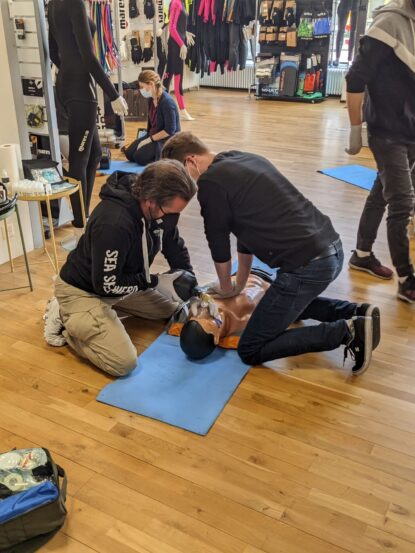
How To Find And Evaluate Basic Life Support Training Providers - Why Is It Important?
Although you never hope that an emergency arises, having a BLS provider is essential to be prepared to respond quickly, and appropriately to emergencies. In 2015, the American Heart Association (AHA) and their Emergency Cardiovascular Care Program trained over 18 million people worldwide. It’s not surprising how many people become CPR certified — considering how accessible Cardiopulmonary Resuscitation certification has become.
However, not every CPR certification is the same. With so many Basic Life Support Training Providers popping up across the country — it can be confusing to find a good training provider and know your team will be trained to be the best they can be. Non-traditional formats incorporating self-instruction and Internet-based instruction are pretty widespread, so how can you find and evaluate a great basic life support training provider?
Based on research, there is an indication that non-traditional courses improve skill acquisition as well as, or better, than traditional techniques.
Basic Life Support (BLS), is a two-part course that provides flexibility in the independent review of CPR training courses. There is an online portion of the course, then you have to schedule and pass a skills test with an AHA instructor, or by a voice-assisted manikin system, according to the AHA. CPR certification is valid for two years from the time of successful completion; however, the AHA recommends reviewing the material and practicing life-saving skills annually.
Here’s where you can find an AHA Training Center near you.
What’s the difference between BLS and CPR?
Basic life support courses are more in-depth and are based on working in teams with other professional rescuers in the medical field. CPR training teaches you the essentials about performing the CPR technique, specifically. While there is no difference between BLS and CPR, Basic Life Support leans towards a healthcare-provider level of training.
Choosing a Course That’s OSHA Compliant
The Heartsaver Courses provided by the AHA are for anyone who needs a course completion card for job, regulatory, or other requirements. While these courses are designed to meet OSHA requirements, OSHA does not review or approve these courses for compliance. Further, BLS courses are not included in AHA’s ACLS courses. It is expected that healthcare providers taking an ACLS course come to class already proficient in BLS skills.
Good news though, the AHA’s does offer BLS courses geared towards medical providers. You can see their BLS options here along with options for how you can purchase BLS.
Okay, we’re ready to get our BLS certification — now what?
A Basic Life Support (BLS) Certification Course should always be OSHA, ILCOR, and ECC compliant and Nationally and/or Internationally Accepted. The program should be designed by AHA-licensed CPR instructors, and should include:
- Comprehensive first aid training.
- Chest compressions and rescue breathing techniques for adults, children, and infants.
- Basic life support for victims of shock, drowning, and drug overdoses.
- Choking response for adults, children, and infants.
- First response for stroke victims.
- OSHA-compliant Bloodborne pathogen training.
- Hands-only CPR.
- Single-rescuer and team basic life support.
Some of the best courses let you take the course for free, and you don’t have to pay until you’re ready to receive your certification.
Done Desk helps you predict where risks may arise by reminding you when your compliance training programs, BLS, or Licenses are coming due. Keeping your files organized and accurate. Helping you manage your human capital — and providing you peace of mind and protection for the business you worked hard to build.

